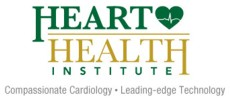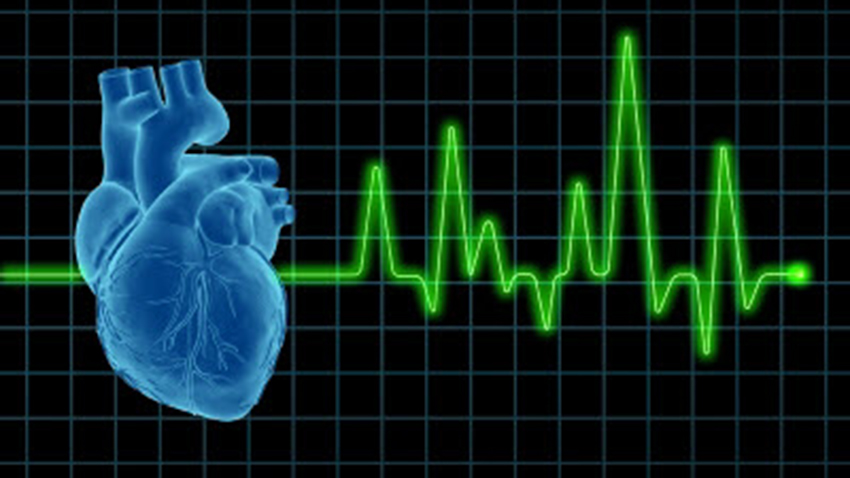What is Heart Failure
Heart health is one of the most important characteristics of a healthy body. Your heart works enormously hard to ensure your longevity, and will beat billions of times over the course of an average life. In short, it works to keep you alive, so you should work to keep it alive!
Being aware of any warning signs that could signal a heart problem is one way you can do that, along with exercising and eating well. So, here are seven signs that you should look for that could indicate you are at risk of heart failure. But remember, one of these signs alone may not be cause for alarm, but could be. Check with your doctor if you are experiencing any of these symptoms on a regular basis.
1) Fatigue
Everyone experiences tiredness, however, if yours lasts all day and you have difficulty completing everyday tasks, it could be a sign that your heart isn’t pumping enough blood to meet the needs of your tissues.
2) Increased Heart Rate
This one is a more obvious indicator. If your resting heart feels like it’s racing, it may be trying to make up for lost pumps.
3) Excess fluid buildup
If you have swelling in your feet, ankles, abdomen or other areas, it may be a sign that your blood flow is impaired.
4) Shortness of breath
If you have difficulty catching your breath while doing regular activity or even just resting, for example while asleep, this could be a sign that your heart can’t keep up with the supply of blood it needs to pump through itself. If your breathlessness wakes you up at night, that’s a particularly troubling sign.
5) Nausea
If you constantly feel full to the point of being sick, it could indicate a digestive problem that’s rooted in a lack of blood supply, indicating a heart problem.
6) Confusion
If you find yourself forgetting things or you feel disoriented, this could indicate a varied level of substances in the blood, which could indicate heart failure.
Heart Failure
It’s important to see your healthcare provider for regular checkups, and especially if you’re experiencing the potential symptoms of heart failure, which include shortness of breath, coughing and fatigue. Your doctor will determine if you have the cardinal signs and symptoms of heart failure, and if so, continue with confirmatory testing.
Tests to Diagnose Heart Failure
The simplest test to do is a blood test called natriuretic peptide (NP). Natriuretic peptides are elevated in patients with heart failure. The patient can get this test done in a lab rather than having to go to a clinic or hospital. An echocardiogram is another test that can be useful in diagnosing heart failure. It’s an ultrasound of the heart that allows physicians to measure the pumping and relaxing functions of the heart.
Once your healthcare provider makes the diagnosis of heart failure—either with natriuretic peptides or by echocardiography, the next step will be determining why you have developed heart failure. Further testing may include:
- Electrocardiogram (ECG). This can help your doctor diagnose heart rhythm problems and heart damage.
- CT scan or MRI to see images of the heart.
- Coronary angiogram. During this test, the doctor inserts a catheter into a blood vessel and injects dye to spot blockages.
- Myocardial biopsy. Your doctor takes small pieces of the heart muscle to diagnose certain types of heart muscle diseases.
Once your healthcare team diagnoses the type and severity of your heart failure, they can work with you on a treatment plan.
Heart Failure Treatment
The earlier congestive heart failure is diagnosed, the better the outcome. There are a number of medications that work to improve the heart’s pumping function and decrease heart failure symptoms, including:
- Beta blockers
- Angiotensin-converting enzyme (ACE) inhibitors
- Diuretics
- Angiotensin II receptor blockers
- Inotropes
A pacemaker may be an option to improve heart function, while an implantable defibrillator can correct abnormal heart rhythms. Lifestyle changes will also determine how successful your chronic heart failure treatment will be. It’s important to avoid sodium in your diet, as this leads to fluid retention. Many patients benefit from a cardiac rehabilitation program, and regular exercise is essential for all patients. If you’re overweight or obese, you’ll need to work with your healthcare team to lose weight.
With early diagnosis and the patient and healthcare team working together to manage congestive heart failure, it’s now possible to live a long, healthy and active life.
Talk to your healthcare provider if you’d like more information on heart failure.
Visit HealthChoicesFirst.com for more videos and resources on heart health.
Print this Action Plan and check off items that you want to discuss with your healthcare provider
-
The simplest test to do is a blood test called natriuretic peptide (NP). Natriuretic peptides are elevated in patients with heart failure. The patient can get this test done in a lab rather than having to go to a clinic or hospital.
-
An echocardiogram is another test that can be useful in diagnosing heart failure. It’s an ultrasound of the heart that allows physicians to measure the pumping and relaxing functions of the heart.
-
Once your healthcare provider makes the diagnosis of heart failure, the next step will be determining why you have developed heart failure. Further testing may include electrocardiogram (ECG), CT scan, MRI, coronary angiogram and myocardial biopsy.
-
There are a number of medications that work to improve the heart’s pumping function and decrease heart failure symptoms, including beta blockers, ACE inhibitors, diuretics, angiotensin II receptor blockers and inotropes.
-
Lifestyle changes will also determine how successful your chronic heart failure treatment will be. It’s important to avoid sodium in your diet, as this leads to fluid retention. Many patients benefit from a cardiac rehabilitation program, and regular exercise is essential for all patients.


